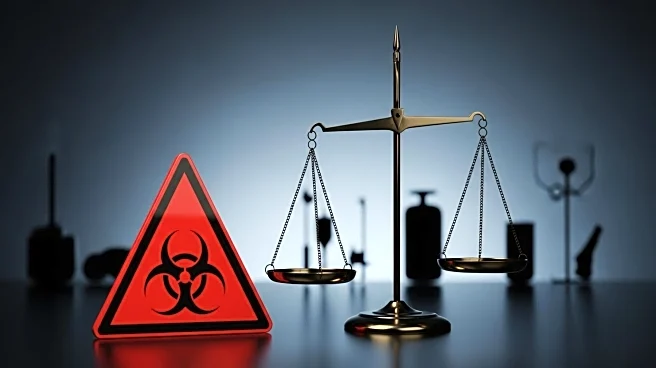What's Happening?
Susan Monarez, recently dismissed as the director of the Centers for Disease Control and Prevention (CDC), testified before the Senate, expressing concerns over the public health policies under Health Secretary Robert F. Kennedy Jr. Monarez warned that the U.S. public health system is at risk due to Kennedy's anti-vaccine stance and his influence over vaccine recommendations. She highlighted the potential resurgence of diseases like polio and whooping cough, which have been largely contained. Monarez's firing followed her refusal to endorse new vaccine recommendations without scientific backing, a decision she claims was pressured by Kennedy. The Senate hearing revealed tensions between Monarez and Kennedy, with Monarez accusing Kennedy of demanding changes to the vaccination schedule without scientific evidence.
Why It's Important?
The testimony underscores significant concerns about the direction of U.S. public health policy, particularly regarding vaccine safety and efficacy. If Kennedy's approach leads to reduced vaccination rates, it could result in the resurgence of preventable diseases, posing a threat to public health. The situation highlights the potential conflict between political influence and scientific integrity in health policy decisions. Stakeholders, including healthcare professionals and policymakers, are closely monitoring these developments, as they could impact vaccine availability and public trust in health agencies.
What's Next?
The CDC's advisory panel is set to meet to discuss vaccine recommendations, including those for COVID-19, hepatitis B, and chickenpox. The panel's decisions will be crucial, as they could alter the current vaccination schedule. The acting CDC director, Jim O'Neill, will play a key role in endorsing these recommendations. The outcome of these meetings may influence public health strategies and the availability of vaccines, with potential implications for disease prevention efforts nationwide.










